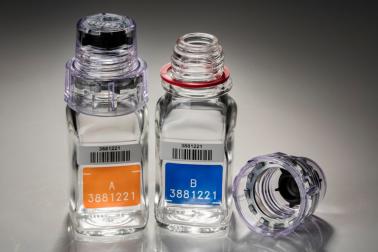Former RUSADA Director Reveals Russian Steroid Doping Secrets After Defecting to the United States
Former RUSADA Director Reveals Russian Steroid Doping Secrets After Defecting to the United States
Grigory Rodchenkov, the former director of the Russian Anti-Doping Agency (RUSADA) in Moscow, has not only revealed the details of the rampant use of anabolic steroids and performance-enhancing drugs (PEDs) by Russian athletes, he has also claimed that the country's anti-doping agency was actually in charge of helping athletes use PEDs and covering up failed anti-doping controls.
 RUSADA might as well have been called the Russian Pro-Doping Agency (RPDA) with Rodchenkov in charge. Some of Rodchenkov's allegations are consistent with other whistleblowers who have testified that Russia was behind a systematic state-sponsored doping program for all of its athletes. Other details have not been verified.
RUSADA might as well have been called the Russian Pro-Doping Agency (RPDA) with Rodchenkov in charge. Some of Rodchenkov's allegations are consistent with other whistleblowers who have testified that Russia was behind a systematic state-sponsored doping program for all of its athletes. Other details have not been verified.
In an interview with New York Times reporters Rebecca Ruiz and Michael Schwirtz, Rodchenko made several specific claims about the state-sponsored doping in Russia. The claims exposed several weaknesses in the anti-doping procedures set forth by the World Anti-Doping Agency (WADA) as well.
Rodchenkov wasn't alone in his efforts to thwart WADA and cover up doping. Other individuals in the Russian government were complicit. He even had assistance from the Russian intelligence service known as the FSB (Federal Security Service of the Russian Federation). The FSB is the main successor to the notorious KGB of the former USSR. It's primary functions include counter-intelligence, internal and border security, counter-terrorism and surveillance. But the promotion of sports doping is apparently a function of the FSB too.
Rodchenkov told The Times that suspected Russian intelligence officer(s) played a crucial role in covering up Russian doping at the 2014 Winter Olympics in Sochi. The RUSADA chief organized an effort to secretly destroyed 100 urine samples stored in a WADA-monitored facility during the Olympics during the middle of the night.
“We were fully equipped, knowledgeable, experienced and perfectly prepared for Sochi like never before,” Rodchenkov said. “It was working like a Swiss watch.”
Rodchenkov handed off the “tamper-proof” containers filled with urine to a suspected FSB officer and within a few hours the officer returned with clean urine. The steroid-free urine samples had been collected from the athletes months earlier when they were not using PEDs. The subterfuge worked and Rodchenkov estimated that it helped win Olympic medals for at least 15 athletes who were participants in the state-sponsored doping program.
“People are celebrating Olympic champion winners, but we are sitting crazy and replacing their urine,” Rodchenkov said. “Can you imagine how Olympic sport is organized?”
Rodchenkov also took credit for a secret steroid formula that he claimed helped athletes avoid detection. It was simply a combination of three different anabolic steroids – methenolone, trenbolone and oxandrolone that were mixed in alcohol in a certain ratio. The cocktail involved low dosages of the three steroids intended as a sublingual delivery method.
The secret formula involved combining one milligram of the anabolic steroid cocktail with one milliliter of an alcoholic beverage. Rodchenkov revealed the type of alcoholic beverage differed based on the gender of the recipient. The steroid combination was combined with Chivas-brand Scotch Whiskey for male athletes and Martini-brand Italian vermouth for female athletes. The formulation was intended for rapid absorption and shortened window of detection by anti-doping tests.
Rodchenkov's claims have not been independently verified.
Rodchenkov's revelations happened to coincide with his promotion of a forthcoming documentary about Russian doping. Rodochenkov has partnered with an American documentary filmmaker named Bryan Fogel to produce “Icarius”. Several months ago, Fogel helped Rodchenkov sneak out of Russia with safe passage to the United States. The details and intrigue, and to some extent the veracity, of Rodchenkov's story are central to the commercial success of “Icarius”. The film is scheduled to be released in September 2016.
Source:
Ruiz, R. & Schwirtz, M. (May 12, 2016). Russian Inside Says State-Run Doping Fueled Olympic Gold. Retrieved from http://www.nytimes.com/2016/05/13/sports/russia-doping-sochi-olympics-2014.html



 RUSADA might as well have been called the Russian Pro-Doping Agency (RPDA) with Rodchenkov in charge. Some of Rodchenkov's allegations are consistent with other whistleblowers who have testified that Russia was behind a systematic state-sponsored doping program for all of its athletes. Other details have not been verified.
RUSADA might as well have been called the Russian Pro-Doping Agency (RPDA) with Rodchenkov in charge. Some of Rodchenkov's allegations are consistent with other whistleblowers who have testified that Russia was behind a systematic state-sponsored doping program for all of its athletes. Other details have not been verified.